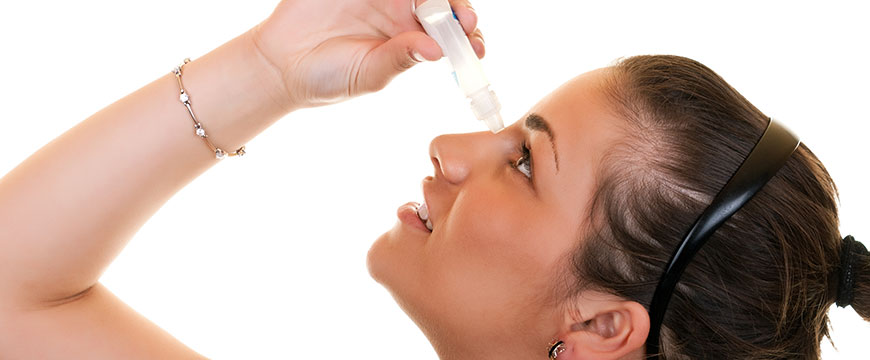
Allergy testing determines whether you are allergic to a particular allergen. Common allergens include pet dander, pollen, insect bites or stings, and some foods, such as peanuts.
Your allergy specialist will conduct an allergy test to determine your body’s reaction to the allergen.
During the test, your provider will look for minor skin reactions that indicate you are likely allergic. Your provider will also look for an uncommon but deadly reaction requiring emergency treatment.
You will need to keep an eye out for a reaction that occurs later, once you have returned home.
How to prepare for an allergy test
You need to inform your healthcare practitioner about all medications you take. Some medications may prevent the allergy test from performing properly.
You may need to discontinue certain medications days, weeks, or months before your test.
Antihistamines, topical steroids, and medications used to treat vertigo or insomnia are among the examples you may need to avoid.
Your provider will tell you if and when you should stop taking any medications. Your doctor will also advise you when you can resume taking the medication after your allergy test.
What you can do to prepare for the allergy test
Just because you’re preparing for an allergy test doesn’t mean you should stop living life to the fullest.
Always see your doctor or allergist to confirm what you should absolutely avoid, but otherwise, you can normally go about your everyday routine. And, rest assured, you can still do some of the activities that people are concerned about prior to allergy testing.
Some of the things you can do include:
Take steroid nasal sprays.
It is usually safe to continue using a steroid nasal spray, but always check with your doctor before the allergy test.
Shower
While you should avoid using strongly scented lotions or colognes for the sake of the other patients, it is acceptable to shower and wear deodorant before an allergy test.
Eat regular diet
There is no need to adjust your diet in preparation for allergy testing, except for avoiding suspected food allergens—and possibly irritating food if you stop taking an antacid. You can even bring a drink and snacks to your visit, if the office allows it.
What you can’t do before an allergy test
There are some items you should avoid before taking an allergy test to ensure the accuracy of the results. Of course, consult your doctor or allergist to see what they recommend. In most cases they will most likely advise against some of these:
Antihistamines
Perhaps the most crucial aspect of preparing for allergy testing is informing your doctor or allergist about all medications and supplements you are taking, including over-the-counter products.
If you’re taking an antihistamine, you should cease three days to a week before your allergy test to avoid suppressing your body’s response to the allergens in issue.
So, at least a week before allergy testing, ask your doctors how long they recommend you refrain.
Some antacids
Some antacids contain an antihistamine, so avoid using them for at least a day before doing an allergy test. You should contact your provider for a full list and timing recommendations. (You may want to avoid acidic, heavy, or spicy foods in the meantime.)
Beta-blockers
If you are using a beta-blocker, which is used to treat high blood pressure, a heart condition, anxiety, migraines, and glaucoma, see your doctor before temporarily ceasing it.
If you have a severe reaction to an allergy, a beta-blocker can reduce your body’s response to an emergency injection of epinephrine.
Tricyclic Antidepressants
Tricyclic antidepressants, can also decrease your immunological response for a week or two, interfering with allergy test findings. Ask your prescribing doctor how to temporarily discontinue your medication regimen.
Fragrances
Even if you are not allergic to certain scent compounds, other patients in the office may be. Put down the hair spray, perfume, or scented lotion for the day as a politeness.
What to expect during the allergy test
When you initially go in for your allergy test, they will apply allergens to your skin. This takes roughly five to ten minutes. Adults have them placed on their forearms, whilst children typically have them done on their backs.
In around 15 minutes, you might notice a little red lump growing in the locations where some allergens were applied. After noting your results, the attending nurse will clean your skin with alcohol.
A patch test may be used to detect any delayed allergic reactions. The allergens are placed on patches that are attached to your skin. You wear this patch for 48 hours, and your doctor will examine your skin for results.
What to expect after the allergy test
You and your healthcare provider will discuss the results of your allergy test. A positive test result indicates that you had an allergic reaction to an allergen.
You and your provider can discuss any extra testing you may require. The tests can determine how serious your allergy is and whether you require medication to avoid or treat a reaction.
Rarely, after a prick or intradermal test, you may experience allergic reactions. Depending on the type of test you received, you should look for symptoms of an adverse reaction. This can occur within hours following an allergy test.
If you experience a reaction, your physician will explain what you should do. You may need to take an antihistamine or another medication to stop the reaction.
Results after the test
Only your doctor or allergist Manassas VA can correctly interpret the findings of your allergy test. However, remember that skin testing will produce observable results, whereas blood tests (if given) will produce higher-than-normal levels of IgE antibodies.
You’ll also notice if you react to eating a food to which you’re allergic during a challenge test.
Following that, your provider will develop a treatment plan tailored to the kind and severity of your allergy.
Make sure to ask them any questions you may have and maintain an open line of communication to keep them updated on your progress and any other reactions you may encounter.







